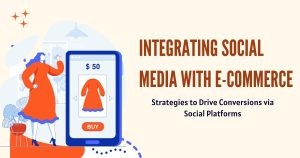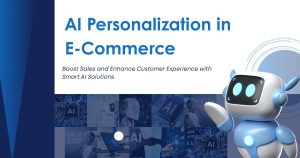Why Ecommerce Businesses Need a Digital Marketing Agency

Running an e-commerce business means juggling inventory management, customer service, product development, and dozens of other critical tasks. Marketing often gets pushed to the back burner, treated as something you’ll “figure out later” when you have more time or resources.
But here’s the reality: without effective digital marketing, even the best products struggle to find their audience. Your competitors are already investing in sophisticated marketing strategies, capturing customers who could have been yours. The question isn’t whether you need marketing—it’s whether you can afford to keep doing it yourself.
An ecommerce digital marketing agency specializes in driving traffic, converting visitors, and scaling online businesses like yours. They bring expertise, tools, and dedicated time that most business owners simply don’t have. This comprehensive guide explores why partnering with the right agency could be the game-changing decision your ecommerce business needs.
The Unique Marketing Challenges of Ecommerce
Ecommerce marketing differs significantly from traditional business marketing. You’re not just promoting a service or building brand awareness—you need to drive specific actions that lead to immediate sales.
Customer Acquisition Costs Keep Rising
Paid advertising costs have increased dramatically across all major platforms. Facebook ad costs have risen by over 90% since 2019, while Google Ads competition continues to intensify. Without expert knowledge of bidding strategies, audience targeting, and campaign optimization, you’re likely overpaying for every customer you acquire.
The Attribution Problem
When customers discover your brand on Instagram, research products on Google, and finally purchase through an email link, which channel deserves credit? Attribution modeling helps you understand your true customer journey, but it requires sophisticated tracking and analysis that most business owners haven’t mastered.
Platform Complexity
Each marketing platform has its own algorithm, best practices, and constantly changing features. Staying current with Facebook’s algorithm updates, Google’s new ad formats, TikTok’s evolving business tools, and email marketing automation requires dedicated research and testing time.
Customer Lifetime Value Optimization
Acquiring a customer is just the beginning. The real profit comes from repeat purchases, higher order values, and long-term retention. This requires coordinated strategies across email marketing, retargeting, loyalty programs, and customer experience optimization.
What Ecommerce Digital Marketing Agencies Actually Do
The best e-commerce digital marketing agencies function as an extension of your team, bringing specialized skills and strategic thinking to every aspect of your online presence.

Comprehensive Strategy Development
Rather than running random marketing experiments, agencies develop cohesive strategies aligned with your business goals. They analyze your market position, competitor landscape, and customer behavior to create actionable marketing plans with clear timelines and measurable objectives.
Multi-Channel Campaign Management
Professional agencies manage campaigns across multiple platforms simultaneously, ensuring consistent messaging while optimizing each channel’s unique strengths. They coordinate paid social, search advertising, email marketing, content creation, and influencer partnerships to create a unified customer experience.
Data Analysis and Optimization
Agencies use advanced analytics tools to track performance beyond basic metrics like clicks and impressions. They measure customer acquisition costs, lifetime value, attribution models, and conversion paths to make data-driven optimization decisions.
Creative Asset Production
From ad copy and landing pages to video content and email designs, agencies produce the creative assets needed to capture attention and drive conversions. They understand platform-specific requirements and can quickly produce variations for split testing.
Technical Implementation
Many marketing strategies require technical setup—conversion tracking, automation workflows, custom audiences, and integration between platforms. Agencies handle these technical aspects, ensuring everything works correctly from day one.
Core Services Every Ecommerce Agency Should Offer
When evaluating potential agency partners, look for comprehensive service offerings that cover all aspects of digital marketing.

Search Engine Marketing
Both organic and paid search remain fundamental for ecommerce success. Agencies should provide search engine optimization for product pages and category optimization, as well as Google Ads management for shopping campaigns, search ads, and display advertising.
Social Media Advertising
Social platforms offer unprecedented targeting capabilities for reaching your ideal customers. Professional agencies manage campaigns across Facebook, Instagram, TikTok, Pinterest, and emerging platforms while staying current with algorithm changes and new features.
Email Marketing and Automation
Email consistently delivers the highest return on investment of any marketing channel. Agencies should design and implement welcome sequences, abandoned cart recovery, post-purchase follow-ups, and segmented promotional campaigns that nurture customers throughout their journey.
Conversion Rate Optimization
Driving traffic means nothing if visitors don’t convert. Agencies analyze user behavior, identify conversion bottlenecks, and systematically test improvements to product pages, checkout processes, and overall site experience.
Content Marketing
Quality content builds trust, improves search rankings, and provides valuable material for social media and email campaigns. Look for agencies that can produce product descriptions, blog posts, video content, and social media assets aligned with your brand voice.
Influencer and Partnership Marketing
Strategic partnerships can dramatically expand your reach and credibility. Experienced agencies have existing relationships with influencers and complementary brands, enabling collaborations that drive authentic customer acquisition.
How to Choose the Right Agency for Your Business
Not all digital marketing agencies understand ecommerce. Many specialize in lead generation for service businesses or brand awareness campaigns that don’t translate to online sales.

Ecommerce-Specific Experience
Look for agencies that exclusively work with e-commerce businesses or have dedicated ecommerce divisions. They should understand platforms like Shopify, WooCommerce, and Magento, as well as ecommerce-specific tools for email marketing, customer reviews, and inventory management.
Transparent Reporting and Communication
Your agency should provide regular, detailed reports that go beyond vanity metrics. Look for clear reporting on revenue attribution, customer acquisition costs, lifetime value trends, and how marketing efforts connect to actual business growth.
Strategic Thinking vs. Task Execution
Some agencies simply execute whatever you ask them to do. The best agencies challenge your assumptions, suggest new opportunities, and think strategically about long-term growth rather than just completing monthly deliverables.
Cultural Fit and Communication Style
You’ll be working closely with your agency team, so personality and communication style matter. During initial conversations, pay attention to how well they listen, how clearly they explain complex concepts, and whether their approach aligns with your business values.
Realistic Expectations and Timeline
Be wary of agencies promising overnight results or guaranteeing specific outcomes. Professional agencies set realistic expectations, explain that optimization takes time, and focus on sustainable growth rather than quick wins that don’t last.
Maximizing Your Agency Partnership
Choosing the right agency is just the first step. Success requires active collaboration and clear communication from both sides.
Provide Complete Access and Information
Your agency needs access to all relevant platforms, analytics data, and business information to make informed decisions. Holding back data or limiting access prevents them from optimizing effectively.
Set Clear Goals and Success Metrics
Rather than vague objectives like “increase sales,” establish specific, measurable goals with defined timelines. This might include targets for customer acquisition cost, monthly revenue growth, or email list expansion.
Regular Communication and Feedback
Schedule consistent check-ins to discuss performance, upcoming initiatives, and any business changes that might affect marketing strategy. Your agency should understand your business as well as you do.
Allow Time for Optimization
Marketing campaigns rarely perform perfectly from launch. Good agencies continuously test and optimize, but this process takes time. Avoid making hasty changes based on short-term fluctuations.
Share Business Context
Keep your agency informed about inventory levels, seasonal trends, product launches, and business priorities. This context helps them make better strategic decisions and avoid promoting out-of-stock items or conflicting with other business initiatives.
When to Consider Bringing Marketing In-House
Agency partnerships aren’t forever. As your business grows, you might consider building an internal marketing team.
Scale and Complexity
Once your marketing spend reaches significant levels—typically $50,000+ monthly—hiring internal team members might become cost-effective. However, this depends on your business complexity and growth rate.
Control and Speed
Internal teams can move faster on certain initiatives and maintain complete control over brand messaging. If you find agency communication slowing down important decisions, internal might be better.
Long-Term Investment
Building internal marketing expertise is a long-term investment. Consider whether you have the management bandwidth to hire, train, and lead marketing team members while maintaining other business responsibilities.
Making the Right Decision for Your Business
The choice between DIY marketing, agency partnership, or internal team isn’t permanent. Many successful ecommerce businesses use different approaches at different growth stages.
Start by honestly assessing your current marketing capabilities and business priorities. If you’re spending more time on marketing tasks than growing your business, an agency partnership probably makes sense. If your marketing is generating strong, predictable results but you want more control, consider hiring internally.
The most important factor is ensuring your marketing gets the attention and expertise it deserves. Whether through an agency partnership or internal investment, professional marketing capabilities are essential for long-term ecommerce success.
Your customers are already online, searching for products like yours. The question is whether they’ll find your business or your competitors’. Making the right marketing investment—whether through an expert agency or dedicated internal resources—determines which answer your business gets.





